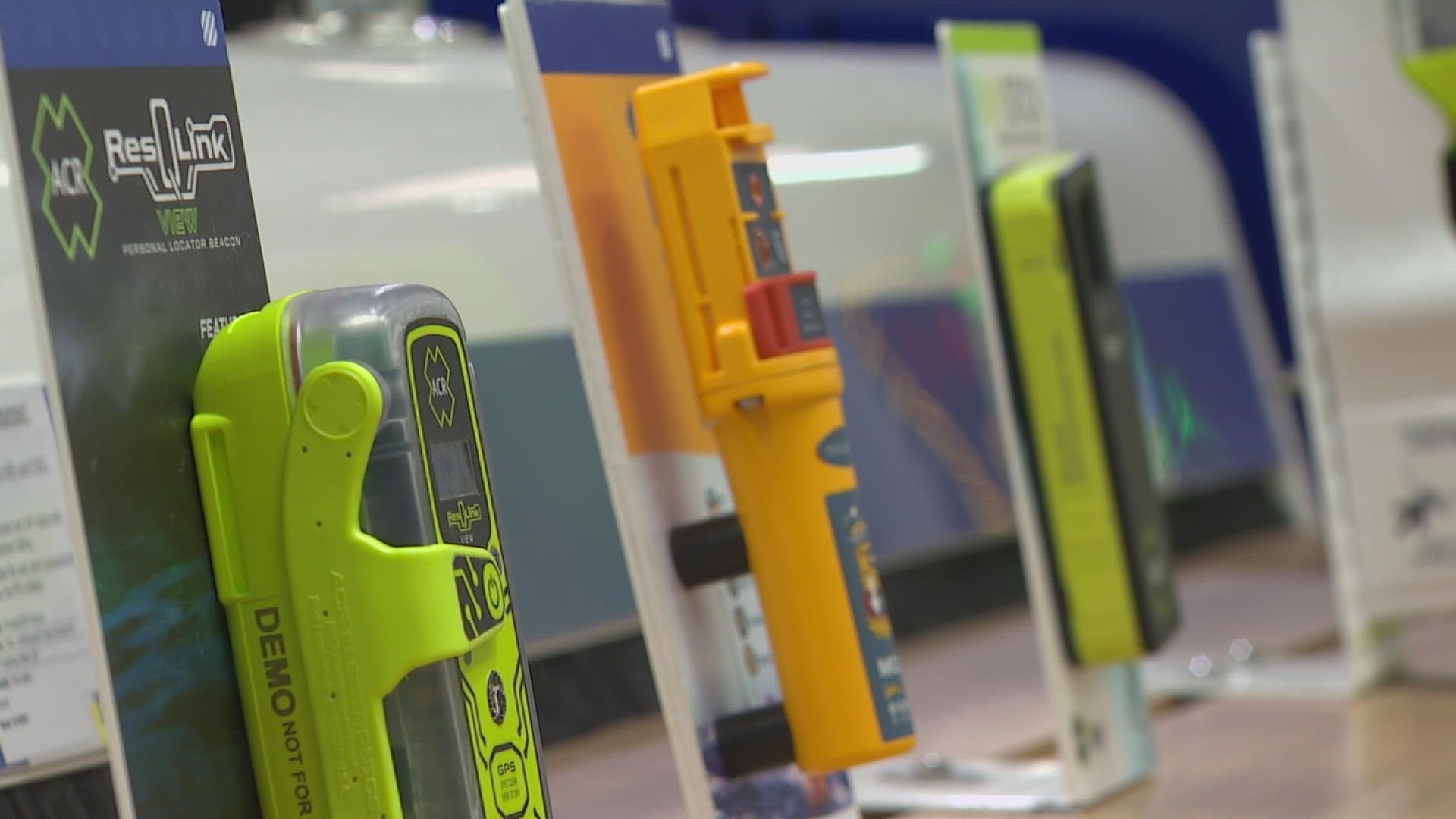BAY CENTER, Wash. — It has now been more than three weeks since Bryson Fitch, a 23-year-old Washington father of three went missing at sea after the crabbing boat he was working on started to sink.
As his family continues scouring the beaches near Willipa Bay searching for him, his mother-in-law is hoping to bring awareness to the federal maritime laws regarding wearable locator devices. She believes a change in that law may have prevented her family's heart-wrenching loss.
"If they would have showed up -- when they rescued those two guys -- and he had a beacon on his belt, they would have found him," said Briee Roby, Fitch's mother-in-law. "They are getting better technology. They do have these vests with beacons in them... and if they could require them and just change the maritime laws and update them a little bit to wear these, it could save hundreds of lives."
A beacon can send location signals to emergency services. Personal Locator Beacons, or PLBs, can be purchased from any maritime supply retailer. They are designed to fit in a pocket, belt or vest, so if a mariner falls overboard, they can be located as long as they have registered the device.
They typically cost between $200 and $500 each.
A maritime lawyer told KING 5 Tuesday that federal law does not require fishing companies to provide PLBs to fishermen. This is something he finds concerning.
"Unless it's mandated by the Coast Guard, many of these vessels won't, you know, take that extra step, even if it will easily save lives," said Nigel Stacey, partner at Stacey & Jacobsen.
The U.S. Coast Guard encourages mariners to wear them.
"It's very helpful when they have them on," said Steve Strohmaier, petty officer for the U.S. Coast Guard's Seattle office. "I’ve had numerous cases -- both on land and in the water -- where a person activates them and we can basically triangulate where they are and go to them immediately."
KING 5 asked why they are not required by law to wear them.
“Good question, ya know, it does come down to a lot of policies in place, but then also the cost that’s associated with it," Strohmaier said.
Stacey said, in his experience, some fishing companies think of a mandate as "an additional expense that companies don't always want to incur."
Recognizing pushback, Stacey said he remains hopeful personal location beacons become required by law.
Meanwhile, in the search for Fitch, his family recently got some help from a volunteer with a search and rescue drone from a nonprofit called Aloft Drone Search.
Snapshots taken from an advanced imaging drone told a story of a sunken vessel.
"We found a chair that looked like maybe a captain's chair," said John Jones, founder of Aloft Drone Search.
Jones' drone utilizes advanced imaging technology. It is built for mapping, can fly at high speed, and can take an image every second.
He scanned roughly 109 miles of coastline near Willipa Bay during a three-day mission over the weekend but ultimately could not find Fitch.
Now his mother-in-law said the hardest part is not having answers.
“It’s not knowing," Roby said. "And it’s my grandkids when they keep asking me questions... asking if they can call him, stuff like that. And my family’s gonna keep searching, they’re gonna keep going, and we’re not gonna stop until we find him.”

